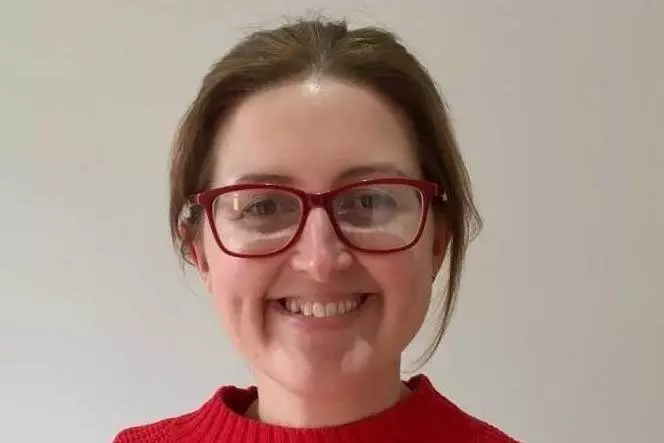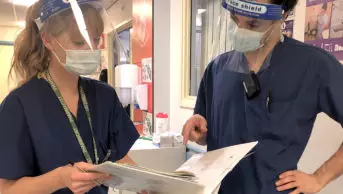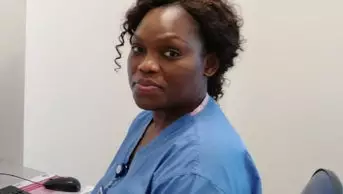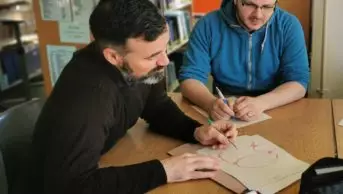
Helen Ireland
I have been the lead for pharmacist preregistration training at Pharmacy Workforce Development South (PWDS) for ten years, providing training and support to all preregistration trainees and their tutors across South West NHS hospitals.
My aim is to help trainees get the most from their placement by providing learning opportunities to complement their workplace learning, adequately preparing them for the General Pharmaceutical Council (GPhC) registration exam and helping them develop into competent and professional pharmacists.
Since the COVID-19 pandemic, all of our face-to-face training sessions are now held via video conference and, with the postponement of the 2020 summer exam, there is now a heavy focus on supporting tutors as they think about signing trainees off at the end of the 52-week training period. For many tutors this is a clear decision because they feel their trainee is ready; however, when the trainee requires additional support, particularly if there are competency concerns, this is often more difficult.
08:45 — start
Our office is located at University Hospitals Bristol, but since lockdown we have been working from home, and only go in if we need access to printing facilities or non-online resources.
I start my day by checking emails and prioritising tasks based on what meetings or deadlines are planned and what would make the most positive impact on trainees and tutors.
09:30
I attend a virtual team meeting with PWDS colleagues. We discuss learning and developmental opportunities for the entire South West pharmacy workforce, from pharmacy assistants to chief pharmacists, including courses on medicines optimisation, process checking for aseptic services and a National Vocational Qualification in pharmacy services, as well as organising network meetings and conferences for specialist pharmacy groups.
Each member of the team gives a brief update on their current and future projects. I summarise my visit to a training site as part of the induction for educational leads and give a status update on the planning for a tutor training event.
10:45
I review the Moodle e-learning platform and e-portfolio system to check the activities of trainees. We use a range of e-learning activities, such as discussion forums, GPhC registration exam-style questions and quizzes that complement the face-to-face training events. This enables all trainees, regardless of learning style, to get the most from their training.
I briefly review the trainees’ portfolio of evidence to see what activities they are using and how they are progressing towards the GPhC performance standards. This gives an indication of whether they are on the expected development trajectory and, if not, whether I need to follow up with the trainee or tutor. Today’s review provides no issues.
11:15
I have a phone call with a preregistration tutor about their ongoing concerns about a trainees’ attitude in the workplace. Such conversations, and the support that follows for trainees and tutors, is one of the most complex and emotionally challenging parts of my role.
In recent years the number of trainees requiring additional support and the number of trainees with mental or emotional wellbeing concerns have all increased. I believe there are a number of potential reasons for this: an increase in the number of trainees accessing our programme increases the likelihood of there being trainees with wellbeing concerns; the introduction of the Oriel recruitment system may have resulted in some trainees moving away from their established support networks; and recent graduates may have greater insight into their own mental wellbeing and know when they may need help.
Each situation is unique and requires careful listening, mentoring and record keeping. If needed I will refer to, or seek advice from, workplace human resources, the GPhC or Health Education England (HEE).
After our phone call, I send a follow-up email to the tutor summarising suggested actions. These centre around approaches to help the trainee reflect on patient-centred professionalism and effective teamworking. I send the tutor an electronic ‘diary request’ to speak again in two weeks to discuss how the trainee is progressing.
12:20
I have a quick lunch before going on a ‘wellbeing walk’. It is very easy to work through lunch, but since listening to a presentation by Pharmacist Support on work stress and the importance of a mental break, I now try to get some exercise at lunchtime.
12:50
I spend a few moments reviewing my emails and catching up on notes from a previous teleconference regarding the development of a new cross-training placement between a hospital and a mental health trust for the 2021–2022 intake.
My role in expanding these integrated training placements includes identifying pharmacy organisations that could take/share a trainee, nurturing the formation of new placements across several pharmacy organisations and helping to advertise the placements to undergraduates, as well as providing the regional training when a trainee enters the role.
We have developed several of these programmes — which involve a range of healthcare sectors including hospital, prison, GP and community pharmacy — so that upon registering, the trainee could work and provide effective medicines optimisation across pharmacy sectors.
13:00
I dial into a teleconference with the pharmacist education lead for the hospital trust, and a pharmacist at the mental health trust developing the new preregistration training position.
Today’s teleconference was to share progress on the development of a training timetable and link this to the GPhC learning outcomes. My role in the conversation is to guide the trusts through what is required by the GPhC, ensure quality in the programme and share experiences from other training partnerships.
14:15
I grab a quick cup of tea and review a session I am facilitating at the next preregistration local learning set (LLS), where every month trainees in the South West come together with about ten other trainees from their local trusts for a day of clinical teaching within a workplace setting.
Each LLS area is facilitated by a dedicated pharmacist, who brings in local experts to help with some sessions. As the LLS group sizes are small, we have adopted a range of interactive and innovative approaches to encourage learning.
For my session I create several sample prescriptions, print my flash cards and finalise my presentation.
15:30
I speak with my colleagues at HEE South. Together we provide the same core preregistration training for the whole of the South. This is about 130 trainees each year. We speak or email on a nearly daily basis regarding planning, writing, assessment and quality control of trainee and tutor programmes.
Today’s conversation focuses on the marking of the trainee audit and quality improvement projects. We review the assessment scheme, discuss the allocation of the abstracts to the marking team and the process for second marking.
17:10 — finish
I do one final email catch up before having a quick conversation with the PWDS director, Ellen Williams, regarding my progress made with new integrated placements. This will feed into her update for the forthcoming South West chief pharmacist meeting.
Box: Are you interested in a similar role?
- My role is NHS Agenda for Change band 8A;
- The role requires a passion for developing others, a clear understanding of current and potential roles for pharmacists, leadership, problem-solving skills, organisation, diplomacy and compassion;
- Volunteer to help others learn more formally — this could be reaching out to nursing colleagues at a local care home and offering to provide a quarterly medicines optimisation presentation, mentoring someone on a course, or offering to supervise pharmacy students in your workplace;
- CPPE has some great resources to help you optimise learning interactions, including one e-learning programme on ‘Helping others learn’;
- Become a preregistration tutor — it is a big responsibility, but a highly rewarding one. With integrated placements, often two pharmacists will co-tutor, which may make the role seem less daunting as there will be two of you sharing the responsibility;
- Consider undertaking a formal course — a postgraduate certificate in clinical education gave me ideas, confidence and validated how I was helping others learn. A part-time research doctorate is not easy, but completing one in 2019 allowed me to explore an area of education in depth and has enriched my practice and developed my personal skill.
You may also be interested in

‘Pharmacy plays a vital role in maintaining patient flow and efficiency of discharges’ – a day in the life of an orthopaedic pharmacist

‘Nothing compares to it’ — a day in the life of a child and adolescent mental health pharmacist
